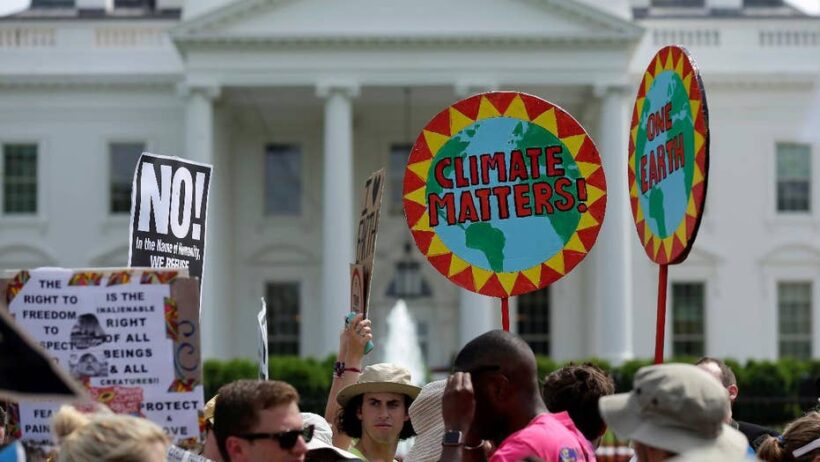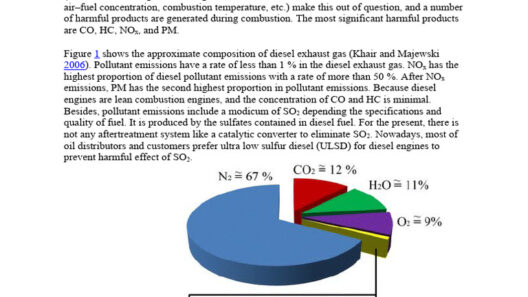The debate surrounding global warming and climate change has been a contentious issue for decades. Among the myriad claims and counterclaims, one particularly sensational assertion arose: that 30,000 scientists had labeled global warming a hoax. This claim captured significant media attention, inciting both skepticism and fervent discussions within various circles. To demystify this assertion, one must explore not only the claim itself but also delve into the motives, implications, and the broader scientific consensus on climate change.
At the heart of this assertion lies a misinterpretation of a petition circulated in the late 1990s, known as the “Global Warming Petition Project.” This initiative purportedly gathered thousands of signatures from scientists—many of whom held degrees in fields unrelated to climate science, such as engineering or mathematics—expressing doubt about the validity of global warming as described in scientific literature. However, it’s vital to scrutinize the claim regarding the number of signatories and their credible standing in the climate science community.
The petition often referenced comprised a diverse group, but a substantial portion lacked the background to contribute meaningfully to the discourse on climate change. This highlights a critical observation: the distinction between those who hold degrees in various scientific fields and those specifically trained in climatology or related disciplines. Indeed, a mere aggregation of signatures does not equate to a legitimate scientific rebuttal of the extensive research advocating for the reality of climate change.
Furthermore, such assertions often stem from a fascination with conspiracy theories. The persistent allure of believing that a significant number of scientists would oppose mainstream climate science fuels public interest. This phenomenon can be attributed to a blend of skepticism towards authority, a desire for alternative narratives, and mistrust in established scientific institutions. In contemporary society, where misinformation is rampant, sensational narratives often eclipse factual evidence, leading to widespread misunderstanding of critical scientific matters.
It’s crucial to address the broader context of scientific consensus on climate change. Numerous reputable organizations, including the Intergovernmental Panel on Climate Change (IPCC), have established overwhelming consensus among scientists; they assert that climate change is occurring, largely driven by human activities. The overwhelming majority of climatologists agree on the fundamental mechanics of global warming, primarily involving the greenhouse effect exacerbated by increased carbon emissions from fossil fuels.
This consensus is steadily reinforced by copious peer-reviewed studies that examine climate data over extensive timeframes. These studies utilize a myriad of methodologies, from paleoclimate reconstructions to contemporary satellite observations, elucidating the multifaceted impacts of climate change, including rising sea levels, increased frequency of extreme weather events, and disruptions to ecosystems. Such evidence cannot be disregarded, as it forms the backbone of informed scientific inquiry.
While examining dissenting views can enrich the scientific discourse, it’s imperative to approach them with critical scrutiny. The scientific method thrives on rigorous questioning, hypothesis testing, and empirical validation. Nevertheless, misinformation often garners legitimacy through its sensational nature—people are more captivated by the idea of dissenting scientists than by intricate climate models backed by rigorous data.
Another aspect contributing to the propagation of the idea that a significant cohort of scientists dismisses global warming involves political and economic influences. Some industries, particularly those tied to fossil fuel extraction and consumption, benefit from perpetuating skepticism regarding climate science. This leads to the funding of research and campaigns that aim to cast doubt on scientific findings. The consequence is a paradox; while a minority voices skepticism, the majority of the scientific community, fueled by a plethora of data, ardently promotes the understanding of climate change as an urgent crisis.
Moreover, framing the struggle against global warming as a binary issue—believers vs. non-believers—oversimplifies a complex interplay of human factors, scientific inquiry, and environmental challenges. It is essential to recognize the multifactorial nature of climate change, which is linked to global development, socioeconomic factors, and sustainability practices. The narrative surrounding the supposed denial by 30,000 scientists obscures the more pressing discussion of climate action and policy formulation aimed at mitigating the impacts of climate change.
The fascination with the notion that a vast number of scientists could potentially repudiate established climate science produces an insatiable curiosity. It serves as a reminder that many still cling to alternative narratives, even when faced with overwhelming evidence to the contrary. This underscores a more profound existential dilemma: the struggle to balance economic growth with environmental stewardship. In addressing climate change, one must grapple with inherent contradictions between immediate economic interests and long-term sustainability.
In conclusion, the claim that 30,000 scientists labeled global warming a hoax is rooted in misinterpretation and exploitation of various cultural narratives, rather than a reflection of the scientific community’s stance on climate change. The majority of climatologists unequivocally emphasize the critical importance of acknowledging and addressing climate change as a global challenge. Engaging with diverse perspectives is crucial, but it must be done with a grounded understanding of the intricate realities surrounding climate science. The challenge lies not in perpetuating myths but in fostering constructive conversations and actionable solutions to combat the climate crisis.








